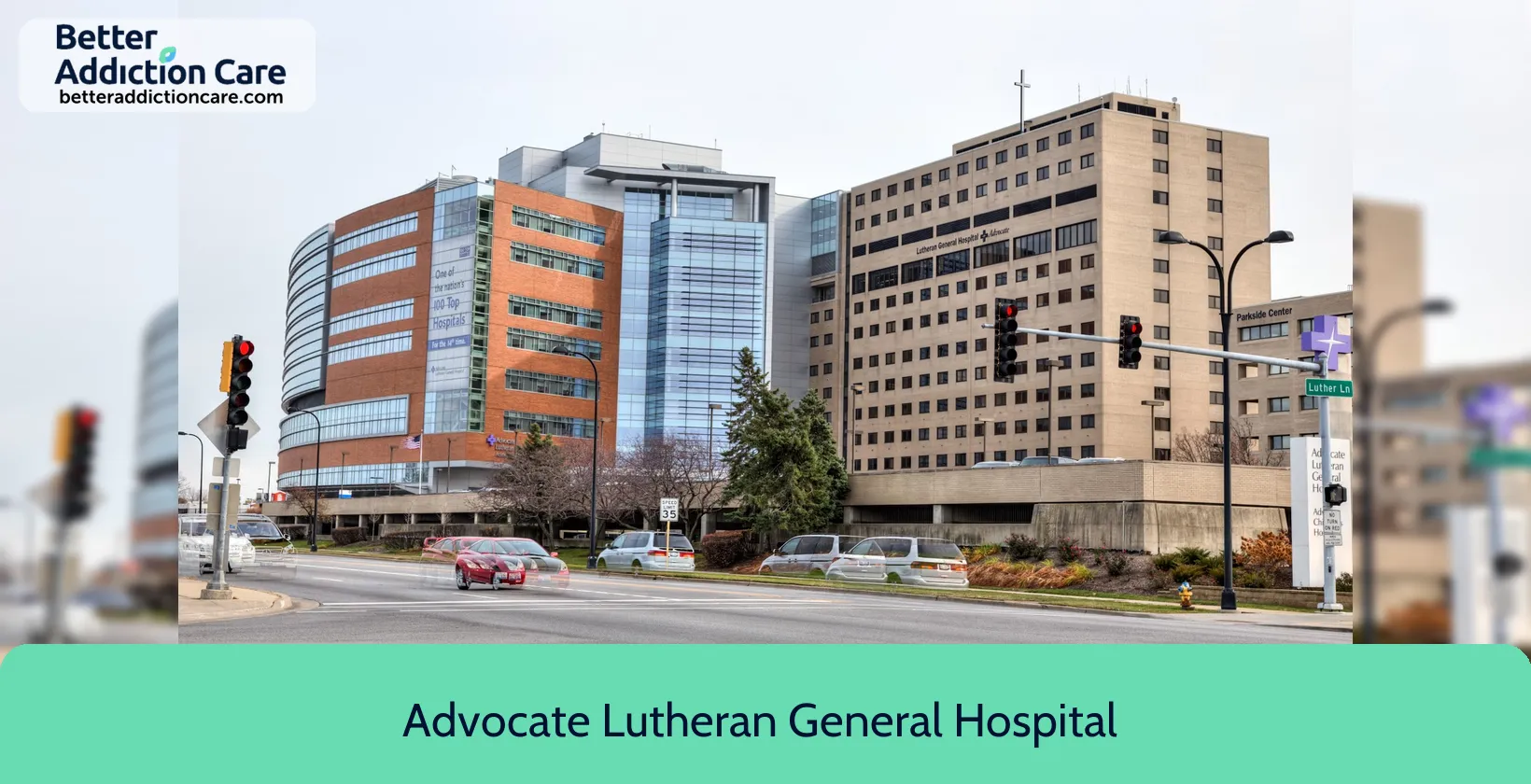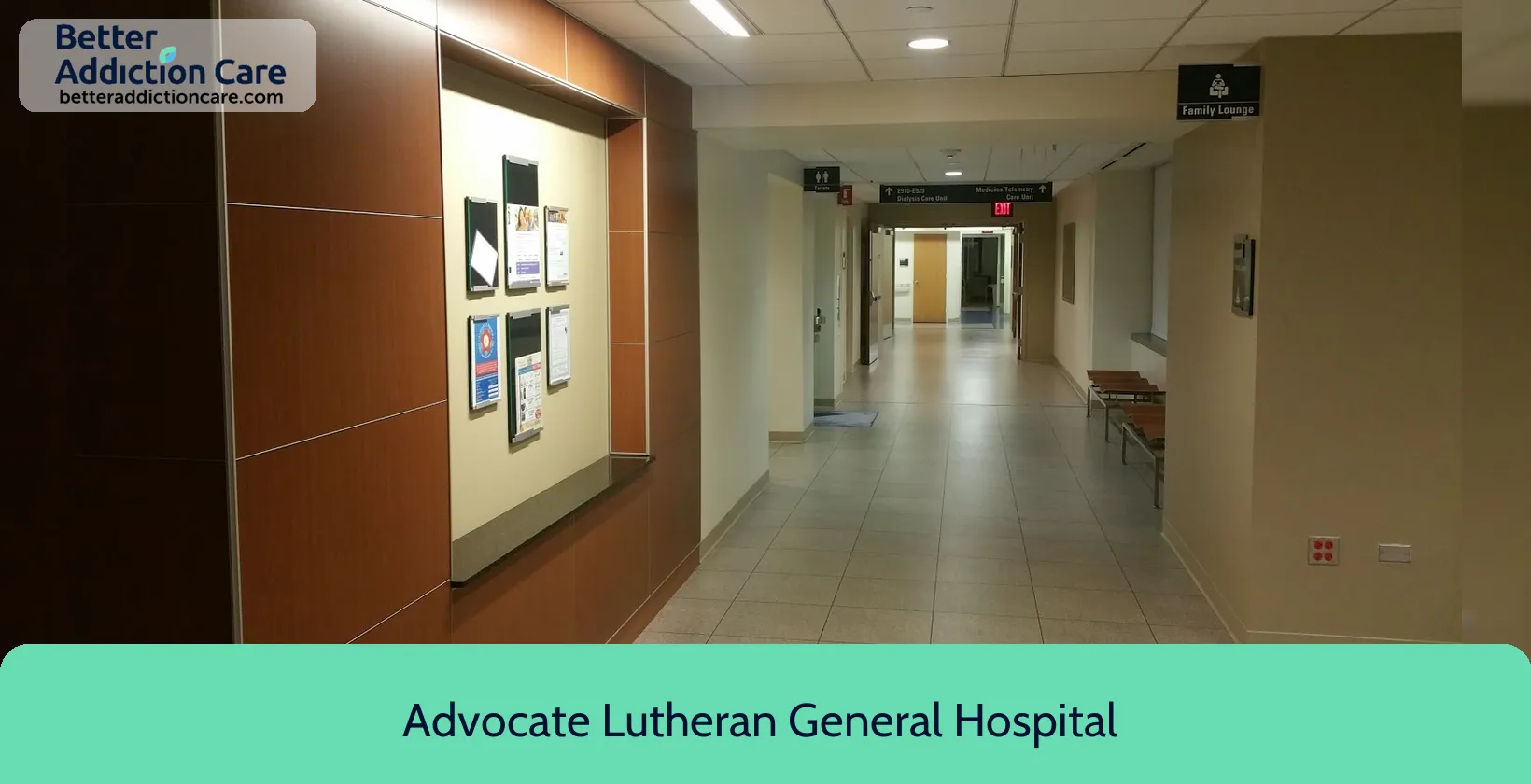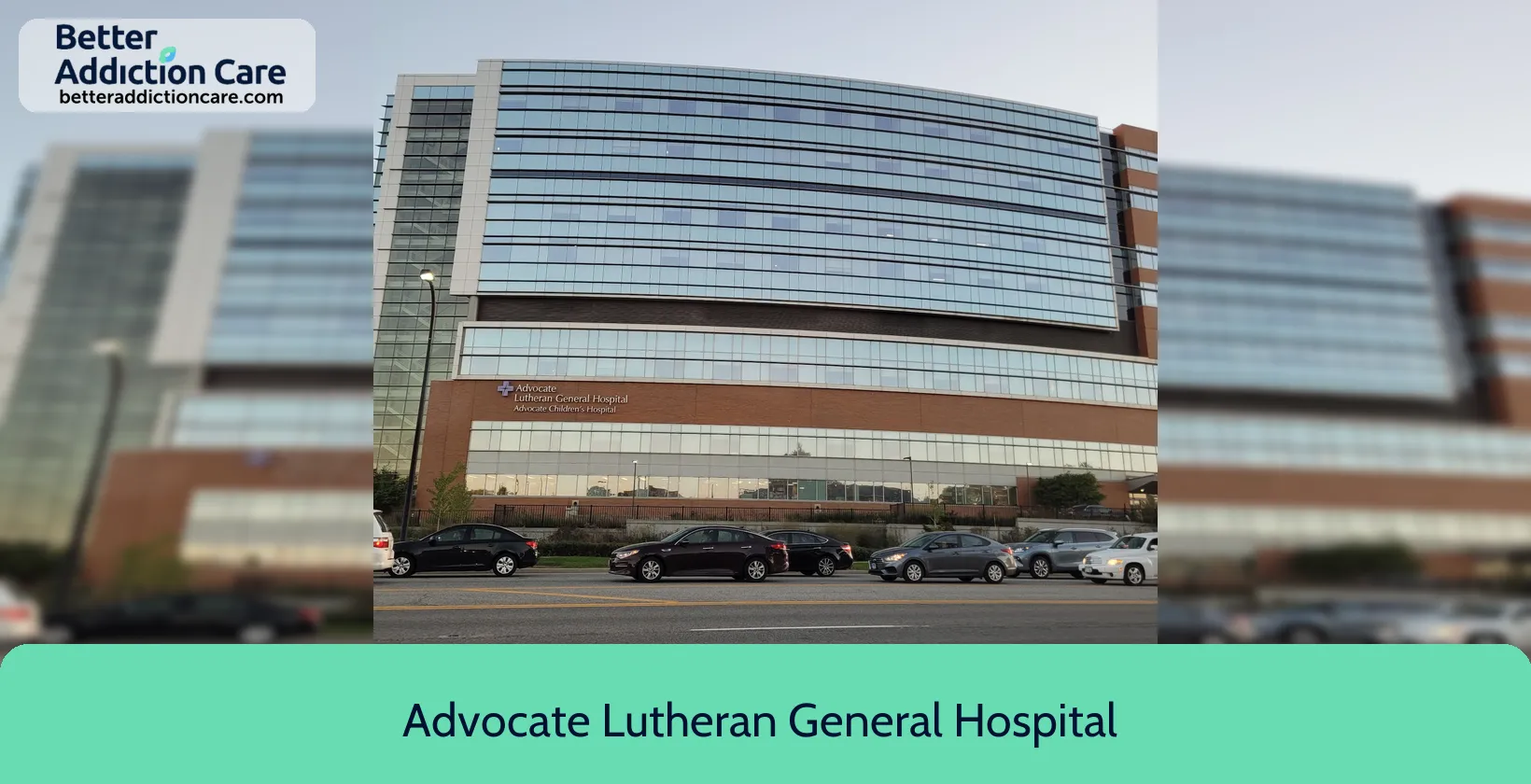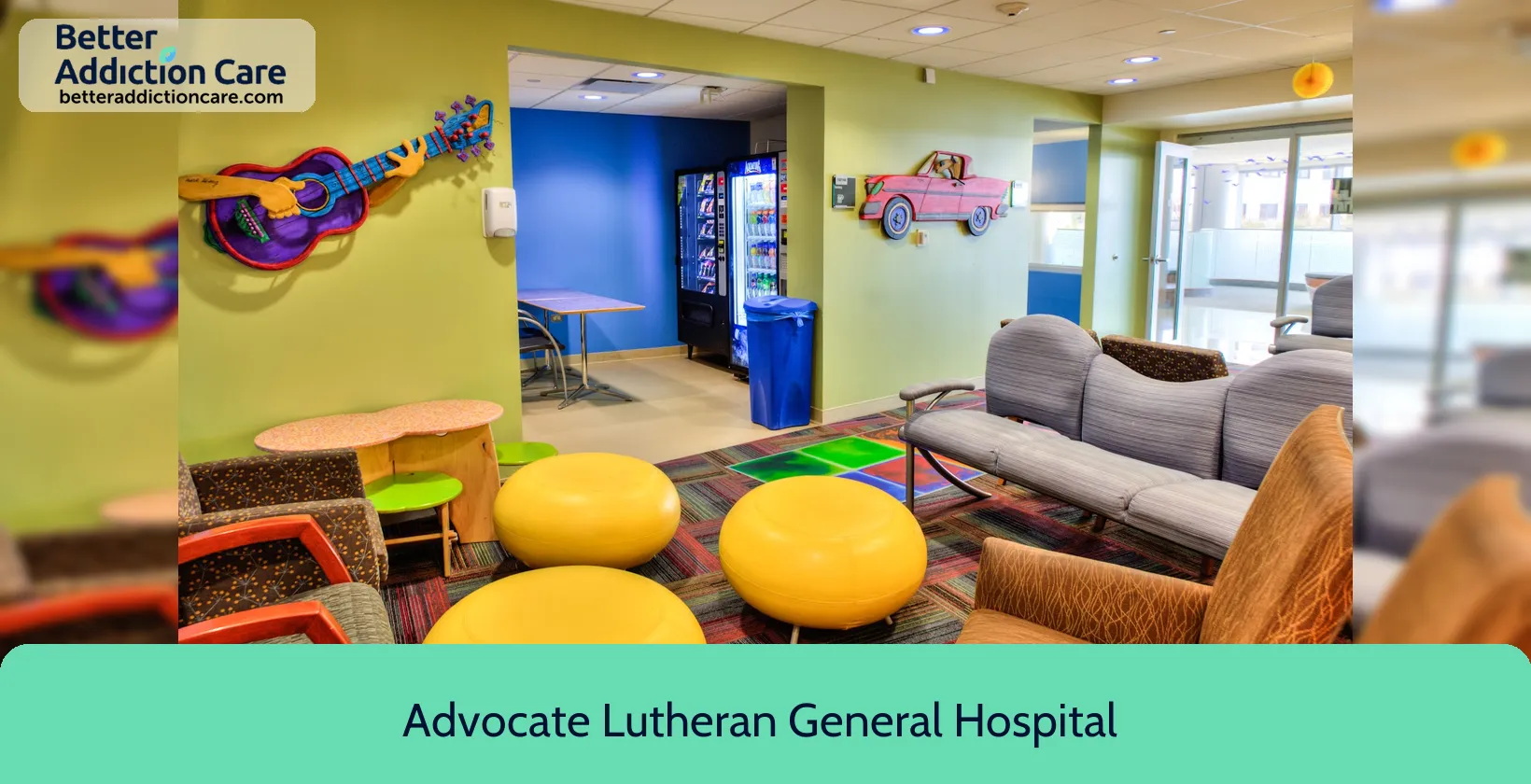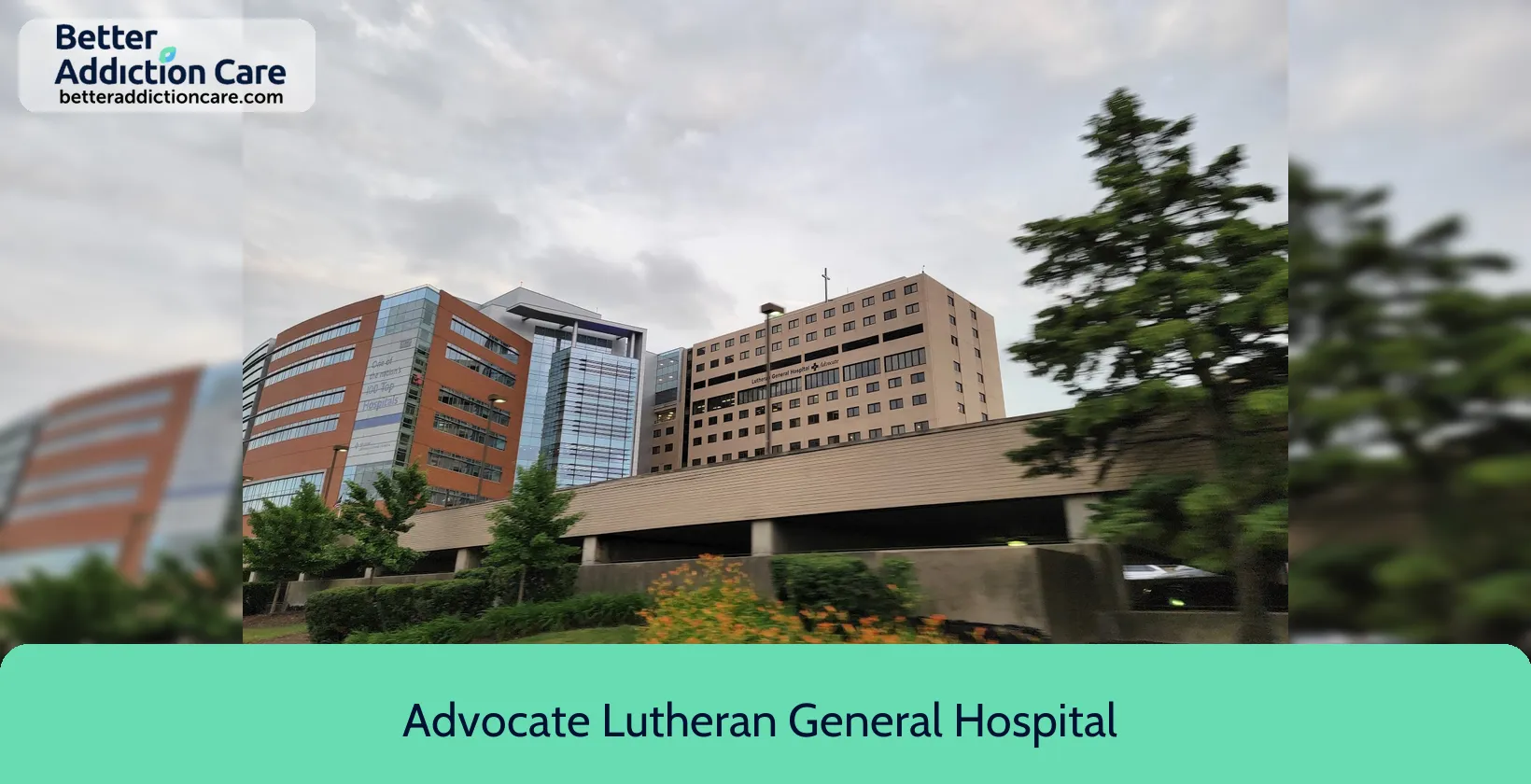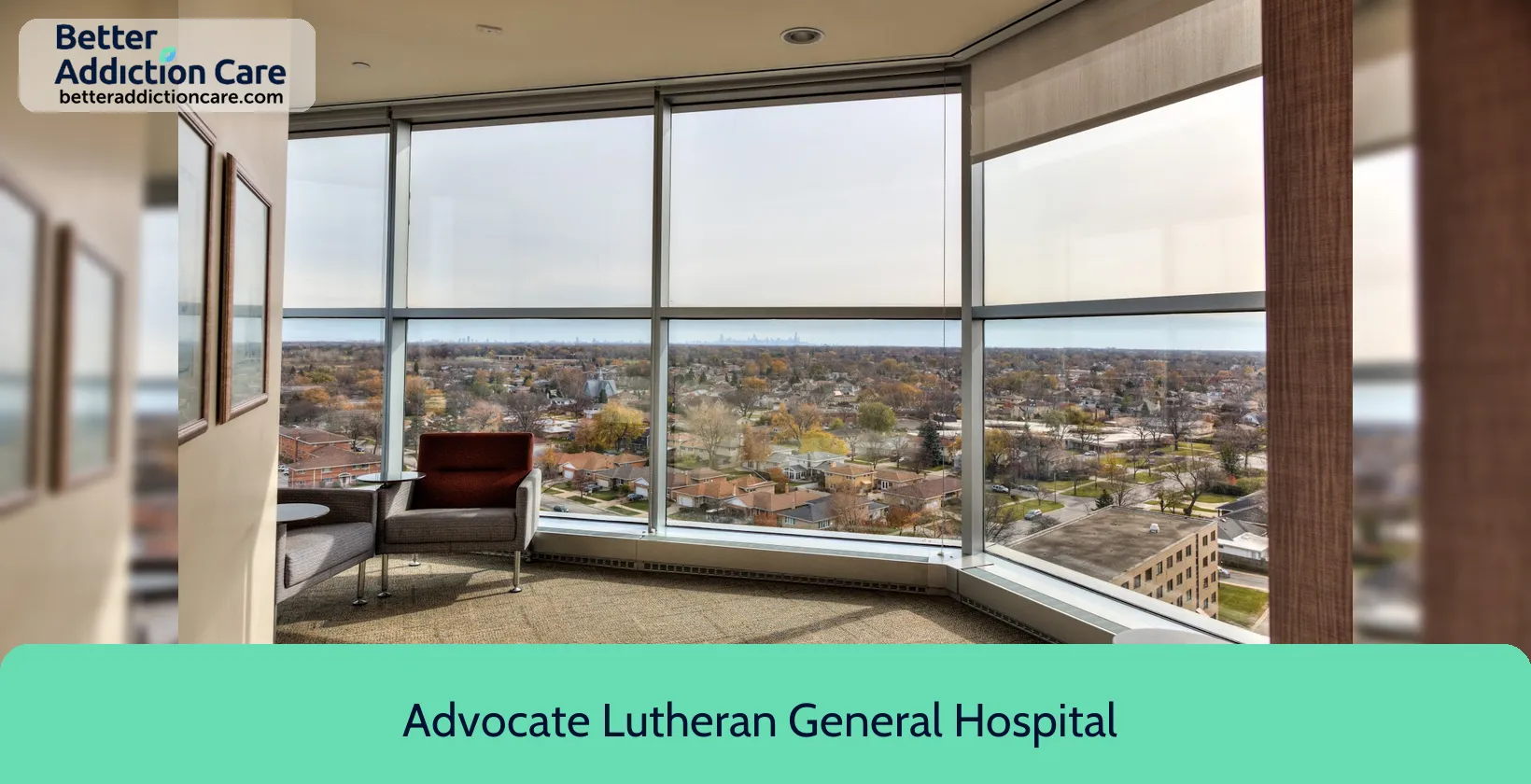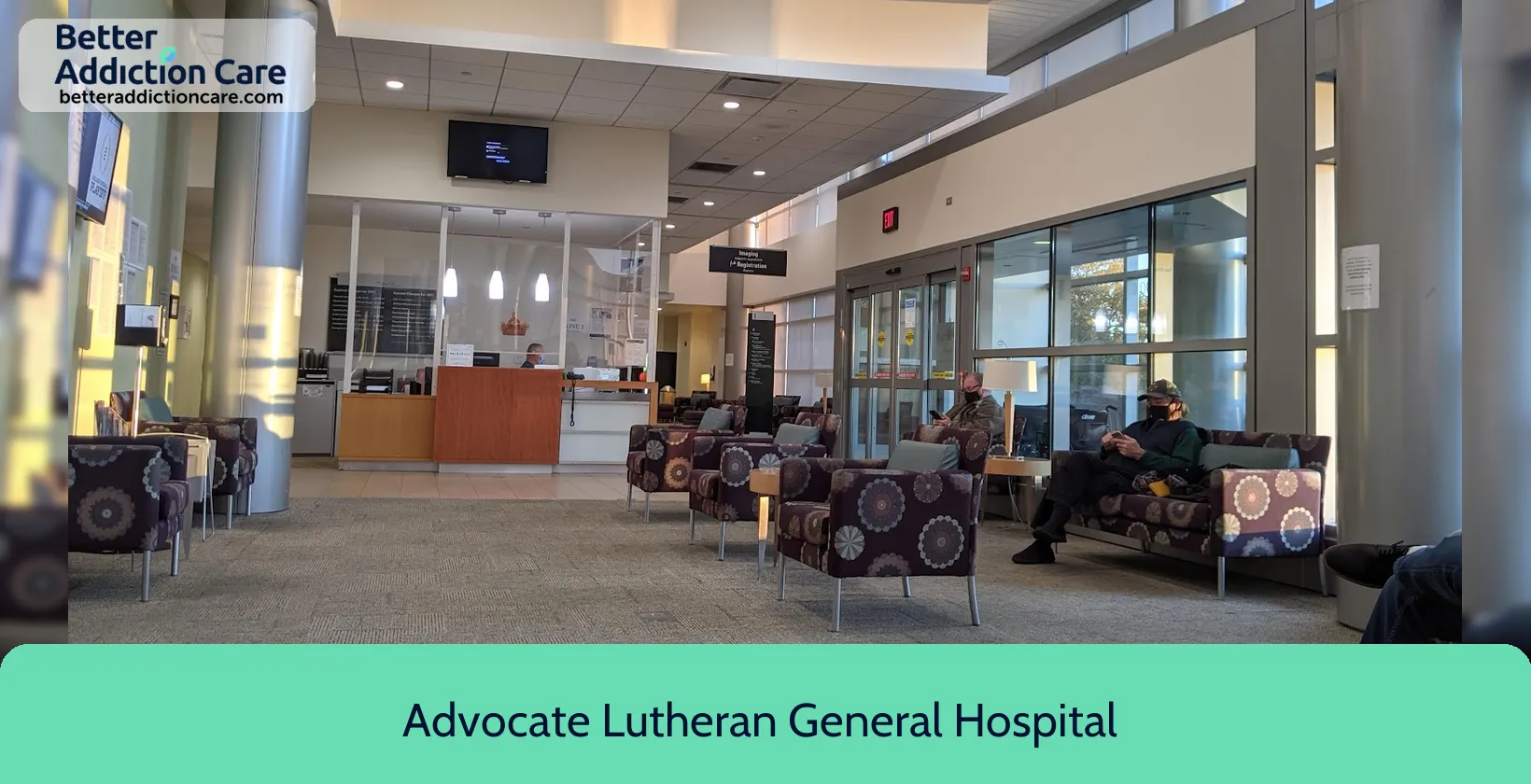Advocate Lutheran General Hospital - Behavioral Health Services
Overview
Situated in Park Ridge, Illinois, Advocate Lutheran General Hospital - Behavioral Health Services provides a wide variety of treatment programs for behavioral problems, including drug and alcohol recovery. A group of experienced and licensed medical specialists staff this discreet clinical environment, offering a range of therapeutic choices including inpatient, intense outpatient, partial hospitalization, and aftercare programs. Adolescents, young adults, adults, and veterans may all access these programs, guaranteeing that the care they get is customized to fit their individual requirements.
Advocate Lutheran General Hospital's inpatient program is intended for patients with severe symptoms who need 24-hour monitoring and care. Clients reside on campus throughout their visit, and they have unrestricted access to medical personnel and resources. A variety of therapy programs run by experts serve as the mainstay of treatment. These programs include occupational therapy, education, skill-building sessions, medication education, group and individual psychotherapy, and management. Each client's care plan is customized for them, giving them the opportunity to actively design their own treatment program to suit their unique requirements for recovery.
For patients with milder symptoms who don't need round-the-clock care, the partial hospitalization program provides an adaptable option. Under this program, clients continue to live at home and carry out their employment obligations while spending several hours a day at the facility receiving care from their committed treatment team. Similar treatment approaches are used in the partial hospitalization program as in the inpatient program, but it provides the necessary flexibility for people who are stable enough to live away from a hospital setting.
As clients return to their regular life, the rigorous outpatient care program gives them even more freedom. It is a structured, daycare therapy option similar to partial hospitalization, but with greater flexibility for those who are prepared to reintegrate into their routines. To facilitate long-term healing and reintegration, this program includes family conferences, social services, and emotional wellness training.
Advocate Lutheran General Hospital places a strong emphasis on offering its graduates ongoing support and care. To guarantee they get the most thorough and specialized treatment possible, clients may also be directed to other facilities for specialized programs. Advocate Lutheran General also collaborates with a number of insurance companies and provides financing and self-pay alternatives. Aetna, BlueCross/BlueShield, Cigna, Humana, TRICARE, United Healthcare, Medicare, Medicaid, and more are among them. It is advised that clients confirm their coverage, since the benefits provided outside of the network may differ based on their insurance plan.
Advocate Lutheran General Hospital is a part of Advocate Health Care, a nonprofit health organization with a faith-based purpose to offer comprehensive care. This kind of thinking views each patient as a unique person made in the image of God, and it focuses on meeting not only their bodily needs but also their emotional and spiritual ones. The organization's goal of serving people, families, and communities via its vast health care network is supported by this strategy.
Advocate Aurora Health was formed in 2018 by the merger of Advocate Health Care and Aurora Health Care of Wisconsin. By merging with Atrium Health in 2022, Advocate Aurora Health continued to grow and became Advocate Health, the third-largest nonprofit integrated health system in the United States. Advocate Health serves a diverse patient population via its 11 hospitals and more than 250 care locations. It uses the most recent methods, tools, and research to provide top-notch medical treatment. Advocating for a compassionate and all-encompassing care paradigm, Advocate Health works to address the changing and varied needs of the communities it serves.
Advocate Lutheran General Hospital - Behavioral Health Services at a Glance
Payment Options
- Cash or self-payment
- Medicaid
- Medicare
- State-financed health insurance plan other than Medicaid
- Private health insurance
Assessments
- Screening for tobacco use
- Comprehensive mental health assessment
- Comprehensive substance use assessment
Age Groups
- Seniors or older adults
- Young adults
- Adults
- Seniors
- Adolescents
Ancillary Services
- Assertive community treatment
- Case management service
- Court-ordered outpatient treatment
- Diet and exercise counseling
- Education services
Highlights About Advocate Lutheran General Hospital - Behavioral Health Services
6.68/10
With an overall rating of 6.68/10, this facility has following balanced range of services. Alcohol Rehabilitation: 8.00/10, Drug Rehab and Detox: 6.00/10, Insurance and Payments: 6.00/10, Treatment Options: 6.73/10.-
Alcohol Rehabilitation 8.00
-
Treatment Options 6.73
-
Drug Rehab and Detox 6.00
-
Insurance and Payments 6.00
Treatment At Advocate Lutheran General Hospital - Behavioral Health Services
Treatment Conditions
- Mental health treatment
- Alcoholism
- Substance use treatment
- Co-occurring Disorders
- Opioid Treatement
Care Levels
- Hospital inpatient/24-hour hospital inpatient
- Outpatient
- Partial Hospitalization Program
- Detoxification
- Outpatient detoxification
Treatment Modalities
- Couples/family therapy
- Group counseling
- Cognitive behavioral therapy
- Integrated Mental and Substance Use Disorder treatment
- Electroconvulsive therapy
Ancillary Services
Languages
- Sign language services for the deaf and hard of hearing
Additional Services
- Pharmacotherapies administered during treatment
- Mentoring/peer support
- Metabolic syndrome monitoring
Special Programs
- Clients who have experienced trauma
- Persons 18 and older with serious mental illness (SMI)
Get Help Now
Common Questions About Advocate Lutheran General Hospital - Behavioral Health Services
Contact Information
Other Facilities in Park Ridge
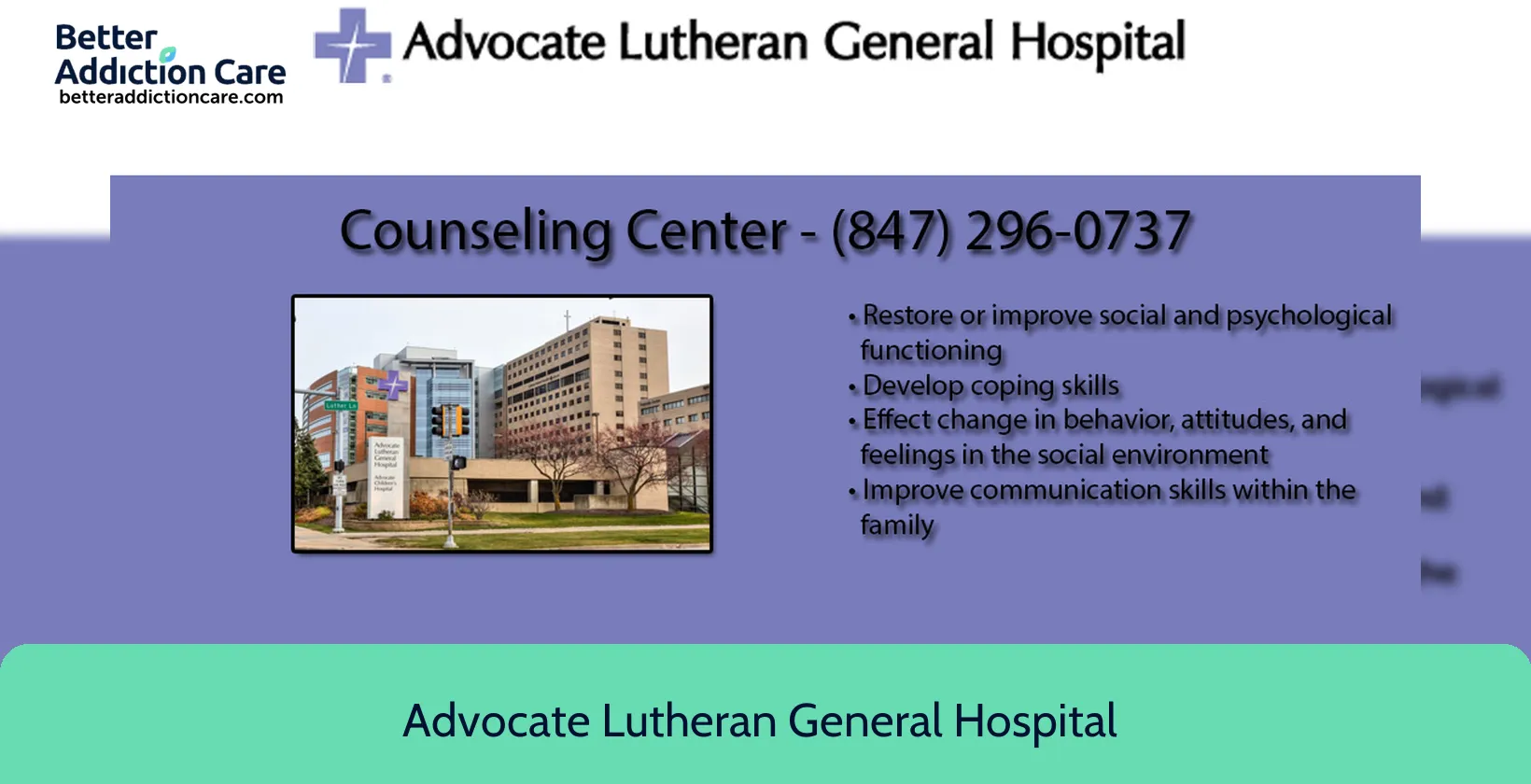
6.71
DISCLAIMER: The facility name, logo and brand are the property and registered trademarks of Advocate Lutheran General Hospital - Adult Partial Hospital, and are being used for identification and informational purposes only. Use of these names, logos and brands shall not imply endorsement. BetterAddictionCare.com is not affiliated with or sponsored by Advocate Lutheran General Hospital - Adult Partial Hospital.
